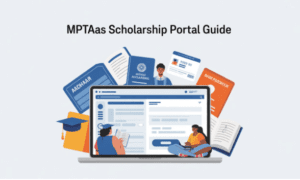Education is considered to be a crucial component of human development. It shapes our social and economic progress as well as our perspective of the world. For the most part, education is viewed as a viable solution to common issues such as economic stagnation, hunger, and human poverty. Hence, education appears to be a significant focus of public policy in national and international contexts.
Education offers people the ability to reason, pursue their aspirations, and live a decent life in society. It promotes human development as well as improves social and economic situations. Education and democracy, according to experts, have the same goal- to ensure contributions to the development of human capacities.
Governments in many nations are pursuing the goal of broadening the dissemination of education at all levels. Meanwhile, global organizations such as the United Nations seek to universalize primary education. While global enrolment has increased in the last few decades, learning levels have remained regrettably low. Most developing nations still lag in terms of literacy.
Some people believe that education is restricted to finishing high school and college. However, education impacts every part of our lives,including independence, relationships, and financial security. People use education as a tool to reduce inequality, generate social awareness, and build strong communities.
This article takes a comprehensive look into how education plays a vital role in accelerating our development as human and social beings.
How does education promote human development?
- Fosters knowledge and wisdom:
Education opens up our minds and molds our perspectives. It fosters wisdom, knowledge, and creativity. Most importantly, it helps us become more intellectual. The exposure we gain through education helps us gain a better understanding of the world around us. A deep level of comprehension is helpful when making profound decisions that have far-reaching implications.
Educated people are an essential component of society as they are the ones that help communities progress and thrive. When people are knowledgeable, it leads to innovation and economic growth. Consider the most advanced countries in the world as an example. The common denominator for these countries is a high literacy rate and a higher segment of the population with advanced education. This distinction has helped them become global superpowers with better living standards compared to other nations.
Thus, education has a crucial role in shaping our imagination and intelligence. When the larger population has a higher level of awareness and knowledge, it generally leads to a positive impact on the overall society.
- Promotes economic development:
The level and quality of education offered to the populace are one of the primary differentiating elements between underdeveloped, developing, and developed countries. The right to education, which is recognized as a fundamental human right in most countries, demonstrates the inescapable link between education and a country’s economic progress.
Education improves the likelihood of more excellent job prospects. It produces a clever, well-informed populace, stimulates economic growth, and raises a country’s GDP. It enables people to lead a healthy and high-quality lifestyle while maintaining a high standard of living.
A nation with an educated population is always more prosperous. Learned individuals tend to have better economic stability. They can buy higher-quality necessary services, implying that their potential for human growth is likely higher than those who do not earn as much. Greater purchasing power directly translates to strong GDP. Hence, education contributes to the economic development of both individuals and countries.
- Reduces or eliminates social prejudice:
Social bias is one of the most pernicious aspects of all human cultures. Negative opinions held by members of society against a specific religion, castes, tribes, gender, or social status are referred to as social prejudice.
Various researches have shown that education can successfully assist people in overcoming many social stereotypes. This is because educated brains are less prone to prejudices and are more likely to base their decisions on logic and reason.
Therefore, it is evident that an educated society has a lower propensity to social and racial prejudices. Such communities have greater equality as every member has uniform accessibility to all resources and opportunities. An equal and educated society is more likely to have a progressive mindset that strives for equal human development for all.
- Reduces poverty rates:
An educated society has lower poverty rates compared to an illiterate society. This is because education allows people to pursue well-paying jobs. An individual equipped with a college degree has better job prospects than one without education. A steady income can alleviate poverty and enable people to live better lives.
Education plays a vital role in uplifting people from perpetual poverty. Thus, it acts as an equalizer that allows people to lead a better quality of life. Moreover, education brings more awareness among the masses. It gives them better judgment and analyzing power. As such, they are more likely to reject archaic, exploitative, and toxic social notions.
- Fosters sustainable development:
A person’s ideas, behavior, and actions are influenced by the knowledge they gain through education. A learned person empowered with scientific data will choose to lead a sustainable way of life and vote for people who support sustainable development. Similarly, an enlightened population will back sustainable policies by the government.
Education can raise society’s environmental and social awareness. This, in turn, can help people make better decisions that will ultimately forge economic viability, environmental consciousness, and social justice. Thus, education and learning can encourage people to change their life course and inspire them to adopt more sustainable practices.
Conclusion
There’s no denying that the need for education in human society is paramount for its progress and development. Education enhances our individual and collective abilities. It helps us recognize our strengths and weaknesses and bestows us with the power to think, reason, and analyze. The benefits of education benefit both people and society. It empowers us to dismantle barriers and build a better society for future generations.
If you’re a student, you must know that you’re incredibly privileged to be able to pursue an education. Millions of kids worldwide still don’t have access to formal education. The life of a student is not unchallenging. It is riddled with anxiety, peer pressure, and stiff competition.
So many kids struggle to manage their studies and personal lives. If you’re struggling to cope with the academic workload, feel free to access an online cheap paper writing service to reduce your stress. It’s a worthwhile investment to seek professional writing help to prioritize your mental health and physical well-being.



































